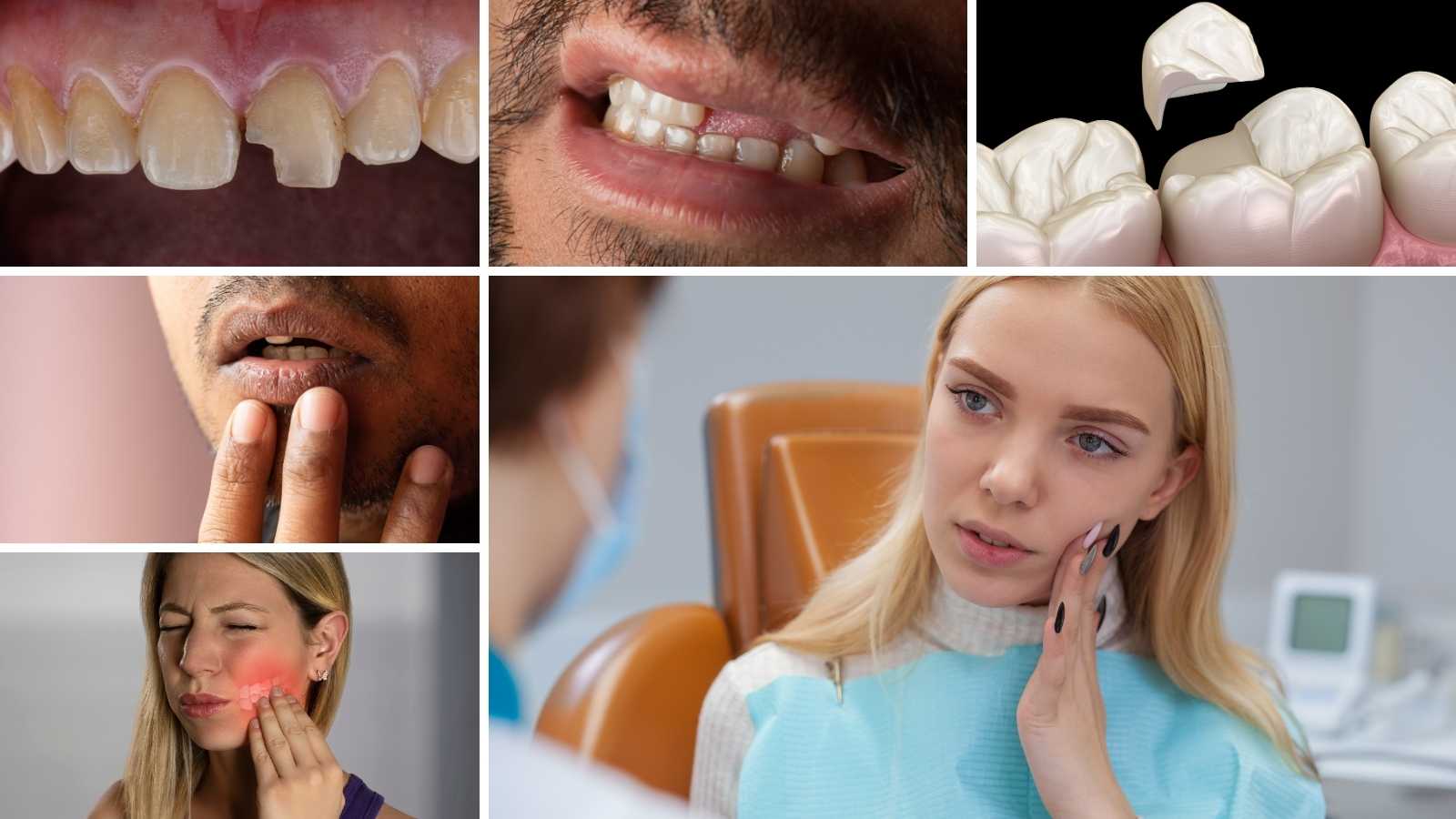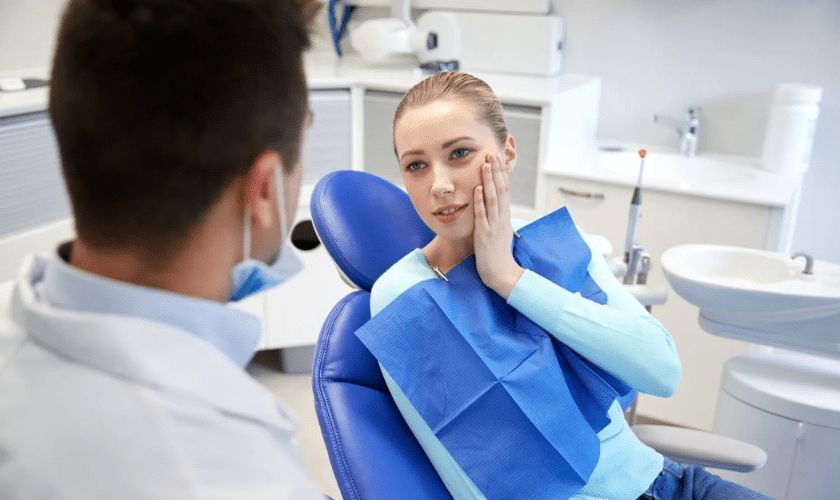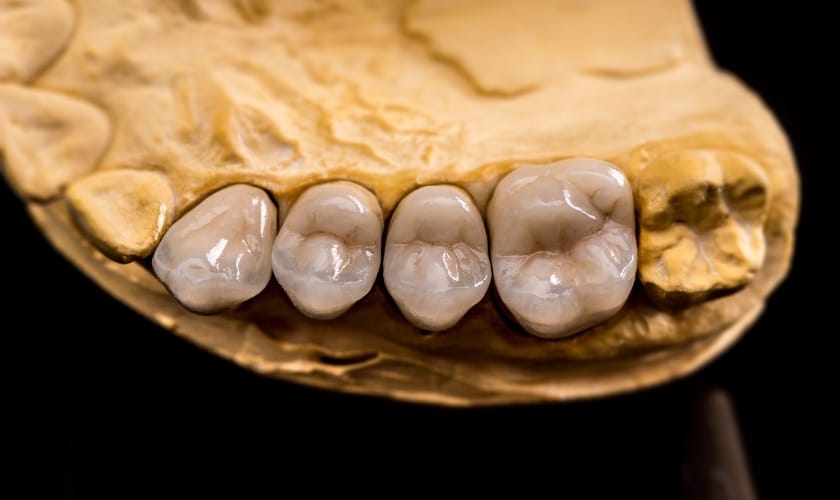
September 1, 2025
Dental crowns are an essential part of restoring the function and beauty of your teeth, but just like any dental restoration, sometimes they can break or become damaged. If you have a broken dental crown, it’s important to act quickly. Knowing what to do in the event of a broken/damaged dental crown can alleviate discomfort and prevent further complications. Here’s what you need to know.
Why Does a Dental Crown Break?
Before getting into the quick steps, it’s important to understand why dental crowns break. They can break or chip due to:
- Chewing hard things: Chewing ice, nuts, or hard candy can put too much pressure on the crown and cause it to break.
- Accidental trauma: A fall, car accident, or even a sports accident can lead to a broken crown.
- Teeth grinding: Grinding your teeth puts pressure that can gradually weaken the dental crown over time.
- Old age of the crown: Crowns can break down over time, especially if they’re made of weaker materials, like porcelain.
Regardless of the cause, it’s crucial to act immediately to avoid further damage or discomfort.
Steps to Take After Your Dental Crown Breaks
If you’ve got a broken crown, do the following to help alleviate pain and minimize damage:
Assess the Damage
First, assess the damage. If the crown is cracked but still on your tooth, try not to touch it. Avoid biting or chewing on that side of your mouth so as not to cause further damage to the crown and your tooth.
Apply Dental Wax or Temporary Cement
If the crown has fallen off completely, try to rinse the crown and your tooth with warm water gently. Apply dental wax or a temporary dental cement, found over-the-counter at most pharmacies, to temporarily recement the crown. This will protect the underlying tooth until you see your dentist.
Avoid Hard or Sticky Foods
After a crown breaks, it’s important to avoid foods that can worsen the situation. Hard, sticky, or chewy foods can cause more damage to your broken crown or irritate the exposed tooth.
Manage Discomfort
If your broken crown causes discomfort, over-the-counter pain relievers like ibuprofen or acetaminophen can help. Make sure to follow the instructions on the medication package for proper use.
Visit an Emergency Dentist in Geneva
If the break is severe or you’re experiencing pain, it’s best to call an emergency dentist in Geneva as soon as possible. A professional can help restore your crown or recommend a suitable replacement to ensure your oral health isn’t compromised.
What Happens During a Dental Crown Treatment?
If you visit your Geneva dentist with a broken crown, they will assess the situation to determine if the existing crown can be repaired or if a new one needs to be placed. Here is what you can expect:
- Examination: The dentist will examine the crown and also the tooth underneath to ensure there is no further damage or decay.
- Fitting a New Crown: If the crown is irreparable, a new crown will be created to fit your tooth. The process could involve impressions, which are then sent to a dental lab for crown preparation.
- Temporary Solutions: Your dentist may place a temporary crown if necessary until your permanent restoration is ready.
How to Prevent Your Dental Crown from Breaking
To avoid the pain and inconvenience of a broken dental crown, observe the following prevention measures:
- Avoid hard foods: Avoid chewing ice or biting into very hard foods that can put unnecessary pressure on your crown.
- Wear a night guard: If you’re a night-time teeth grinder, wear a custom-made night guard. This will protect your crowns from the excessive force of teeth grinding.
- Regular check-ups: Visit your dentist twice a year so that they can see if your crown is in fine condition and there is no hidden issue with your tooth.
A broken dental crown can be painful, but by taking the right precautions, you can manage the situation until you can see your dentist. If you are in Geneva and you break a dental crown, you must act quickly. No matter if you are using a temporary solution or a professional one, it is vital that you look after your dental health.
